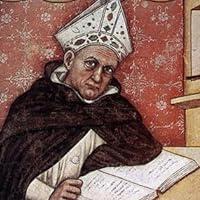
Albertus Magnus
درباره نویسنده
Albertus Magnus, also known as Saint Albert the Great, was a prominent philosopher and theologian during the Middle Ages, renowned for his vast contributions to various fields, including natural sciences, metaphysics, and ethics. He was a pioneer in the integration of Aristotelian philosophy with Christian doctrine, which laid the groundwork for future scholastic thinkers. His works, such as "On Animals" and "On the Causes and the Procession of the Universe," reflect his deep engagement with both ancient texts and contemporary scientific inquiry, demonstrating a remarkable blend of faith and reason.
As a professor at the University of Paris and later a bishop, Albertus played a crucial role in shaping medieval education and thought. His teachings emphasized the importance of observation and experience in understanding the natural world, making him one of the early advocates of empirical methods in science. Influencing a wide range of scholars, including his own student Thomas Aquinas, Albertus Magnus's legacy endures in both the philosophical and scientific communities, marking him as one of the most significant figures of the 13th century.